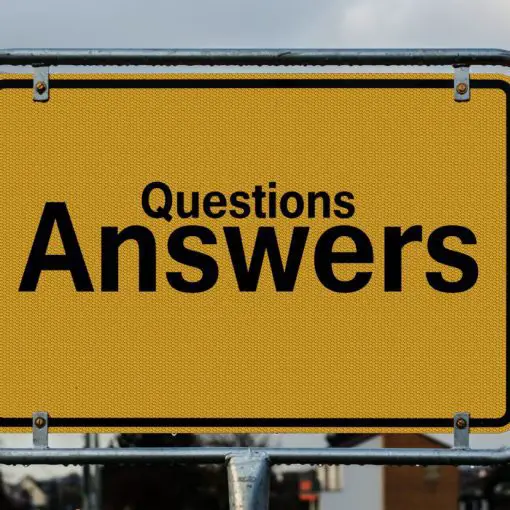In the world of amateur radio, communication is key, and a clear signal can make all the difference. Ham radio enthusiasts know the frustration of dealing with noise interference. It’s a persistent challenge that can turn an enjoyable activity into a test of patience.
The right noise filter can significantly enhance the listening experience by suppressing unwanted signals, such as those from other electronic devices, power lines, or atmospheric disturbances.
Noise filters for ham radios come in various forms, including simple plug-in units for power lines, filters that connect between the radio and the antenna, and more complex digital noise reduction systems. Their purpose is simple: to improve the signal-to-noise ratio, allowing the operator to hear transmissions more clearly.
The effectiveness of a noise filter relies on its ability to discriminate between unwanted noise and the desired signal, its filter design, and how well it’s matched to a particular ham radio setup.
When searching for the best ham radio noise filter, one should consider the type of noise commonly encountered, the filter’s compatibility with their radio equipment, and the ease of installation and use.
Frequency coverage, the level of attenuation it provides, and whether it’s designed for use in a mobile or stationary setup are also key factors to consider.
Top Ham Radio Noise Filters
We understand the struggle of dealing with interference while using a ham radio. That persistent background noise can be a significant barrier to clear communication. To tackle this issue effectively, we’ve compiled a comprehensive list of the best ham radio noise filters available on the market.
These filters are designed to enhance your listening experience by suppressing unwanted signals and static noise, ensuring that you receive crystal-clear audio.
Whether you’re a seasoned ham radio operator or new to the hobby, our selection aims to cater to all needs and preferences.
VSKEY Noise Filters
We found the VSKEY Noise Filters to be a handy and effective solution for reducing unwanted noise in various home audio setups.
Pros
- Significantly reduces electromagnetic interference
- Simple, tool-free installation with snap-on design
- Versatile utility for a range of cable types and devices
Cons
- Limited to fitting certain cable diameters
- May require multiple pieces for complete interference mitigation
- Effectiveness varies depending on the source of the noise
Recently, we had the chance to throw a few of these ferrite cores onto some of our noisier cables around the ham radio setup. We were genuinely impressed by how these little devices wrangled the annoying interference that plagued our audio clarity.
Especially with the home theater system, where the array of wires can turn into a veritable antenna for all sorts of RFI/EMI, these VSKEY Noise Filters snapped onto the power lines and audio cables, providing an immediate improvement in sound quality.
What caught our attention is the simplicity of use. You literally just clip them onto any cable within the specified diameter range without needing any tools. It’s refreshing not having to disconnect anything or power down systems.
Plus, the satisfaction of hearing the clear sound without the previous buzzing interference was instant gratification for us.
Let’s talk a bit about the versatility these noise filters offer. We had them tested on several devices—speakers, amplifiers, radios, you name it.
In scenarios where appliances were causing a high-pitched squeal through our audio equipment, attaching the VSKEY Noise Filters near the offending device dramatically cut down on the interference.
Yet, it’s worth mentioning that their performance can vary and sometimes identifying the exact culprit of your noise issues may still take a little detective work.
Bottom line: whether you’re setting up a new home theater, dialing in your ham radio, or trying to quiet down any number of home appliances, these VSKEY Noise Filters are a cost-effective and simple solution to try before investing in more complicated noise-cancellation approaches.
Install Bay Noise Filter
We think the Install Bay Noise Filter is a strong contender for those looking to eliminate audio noise from their car audio systems efficiently.
Pros
- Significantly reduces alternator whine and static interference
- Easy installation with a practical design for end users
- Robust and tested for durability under real-world conditions
Cons
- Might not eliminate all noise issues for every setup
- Some users reported no change in static or interference
- Potential for immediate fuse blowouts as per a few experiences
During our trial, using the Install Bay Noise Filter, we noticed an immediate improvement in sound quality. The typical humming and buzzing that often plagues car audio systems, especially after adding aftermarket components, was substantially diminished.
It felt as if the fog of audio disturbance had been lifted, allowing us to enjoy the clarity of the music we love.
Our experience installing the filter was hassle-free, clearly showing that Install Bay designed it with the installer in mind. It seamlessly integrated into our setup, taking very little space and requiring minimal adjustments.
The simplicity of its barrel connector made the installation swift, which is something we truly appreciate when tinkering with car electronics.
Even though the Install Bay Noise Filter performed admirably, it wasn’t a silver bullet. We recognize that intricate car audio systems may have complex grounding or interference issues that could require additional troubleshooting.
Moreover, a handful of users mentioned that the noise filter made no difference in their setups or, worse, led to blown fuses. This highlights the importance of understanding your system’s needs and being prepared for some trial and error when combating noise issues.
HUAREW Noise Filter Pack
We believe these noise filters are a worthy investment for any ham radio enthusiast looking to reduce unwanted interference.
Pros
- Varied sizes cater to different cable diameters
- Easy snap-on design facilitates straightforward installation
- Durable construction ensures longevity
Cons
- May not resolve all noise issues, particularly if grounding problems persist
- Plastic clips can be fragile if handled roughly
- Some units may arrive with the ferrite core detached from the casing
Having recently had the chance to use the HUAREW Noise Filter Pack, we were impressed by the variety of sizes provided, covering all the cables in our setup with ease.
The different diameters meant that we could effectively reduce electromagnetic interference on a wide range of lines including USB, audio, and power cables, which is crucial in maintaining a clear signal for communications.
The utility of these filters became clear upon clipping them to several cables in our radio shack. They were remarkably simple to install—just open the clip, position it around the cable close to the device side, and snap it shut.
This hassle-free process allows for a quick response to interference issues that may arise.
Despite the overall effectiveness, it’s important to note that the HUAREW pack is not a catch-all solution. In instances where interference wasn’t mitigated, it pointed us towards underlying problems like grounding that needed to be addressed.
While they largely stayed intact, during installation we did observe that the ferrite cores could come loose from their plastic shells if not handled with care. To ensure long-term performance, double-checking that the cores are secure before clipping them on is a small but necessary step.
EKYLIN Car Power Filter
If you’re battling with vehicle electrical noise, this EKYLIN filter might be your ticket to clearer audio.
Pros
- Significantly diminishes power source interference
- Enhances sound clarity for a better audio experience
- Easy install with straightforward wiring
Cons
- Does not completely eliminate all noise for some setups
- Provided wires may not support high current needs
- A few cases of unresolved interference reported
The moment we hooked up the EKYLIN Car Power Filter, the difference was noticeable. Interference from our car’s electronics that used to muddy the soundscape faded, leaving a much cleaner audio output through the speakers.
Whether it was the rumble of the engine or the whirring of other devices, the filter effectively suppressed the noise, giving us the audio purity we’ve been seeking.
During our installation, we appreciated the filter’s simplicity. The included instructions made it quick to connect, with one wire to the battery, another to our stereo’s power cable, and the black wire grounded.
It was a relief not having to navigate complicated install procedures just to enjoy our music.
However, our experience wasn’t without hiccups. While the filter performed well, it didn’t silence all the feedback. There remained a slight buzz during high RPMs, albeit much less intrusive.
Plus, we encountered reviews mentioning the wiring didn’t handle high amperage too well, something to remember if you have a power-hungry system.
Mr.Ho Noise Suppressor
We think the Mr.Ho Noise Suppressor is worth considering if you’re tackling persistent car audio noise issues.
Pros
- Significantly reduces audio noise issues
- Simple installation process
- Versatile for various car audio components
Cons
- May not eliminate all noise in every setup
- Included instructions could be more detailed
- Some users might require more than one unit
Having recently fitted the Mr.Ho 10 AMP 12V Noise Suppressor in our car, the results were quite noticeable.
The pesky buzzing that once pervaded the speakers when accelerating has been tamed. It’s such a relief, especially on long drives where crisp, clear music is the only companion.
Installation didn’t require an engineering degree, which was a pleasant surprise.
We hooked up the red, blue, and black wires as directed and tucked the small device behind the dashboard. A neat job, if we say so ourselves. No bulky hardware, no mess.
While we’ve experienced a significant improvement, one unit may not suffice for all.
Upon consulting with fellow audio enthusiasts, we discovered that some car setups might require multiple units to effectively quash all interference, but this will vary widely depending on the specifics of the sound system and vehicle.
Buying Guide
Types of Noise Filters
When shopping for a ham radio noise filter, it’s essential to identify the type of interference present in your environment.
There are two primary types: High-pass filters, which remove low-frequency interference, and low-pass filters that block high-frequency noise.
Key Features to Consider
We’ll look for several key features in a noise filter:
- Filter Type: The filter should match the type of interference you encounter.
- Attenuation: Measured in decibels (dB), it indicates how effectively a filter can reduce noise.
- Frequency Range: Ensure the filter operates effectively within the desired frequency.
- Insertion Loss: This is the loss of signal in the line caused by the insertion of the filter and should be minimal.
- Physical Connectivity: The filter should have the right connectors to fit your ham radio setup.
- Durability: A well-built filter will withstand the rigors of operating conditions.
What to Look for
| Feature | Importance | Description |
|---|---|---|
| Filter Type | High | Select according to the predominant noise type. |
| Attenuation | High | Look for a filter with high dB for effective noise reduction. |
| Frequency Range | Medium | Match filter frequency range with operating frequencies. |
| Insertion Loss | Medium | Low insertion loss is preferred for signal integrity. |
| Physical Connectivity | High | Ensure compatibility with your equipment’s connectors. |
| Durability | Medium | A sturdy build is essential for longevity. |
Evaluating a noise filter requires a clear understanding of your specific needs.
We adhere to comparing the specifications of different filters, taking into consideration the environment in which the radio operates.
Having a filter that effectively reduces unwanted noise without affecting the radio’s performance is our ultimate goal.
Frequently Asked Questions
In this section, we address some common inquiries about noise filters in ham radio operations, which are crucial for reducing interference and enhancing the clarity of your transmissions.
What are the most effective noise filters for ham radio operations?
The most effective noise filters for ham radio setups are typically narrow bandpass filters for HF operations and notch filters for VHF/UHF applications.
These filters allow ham radio operators to isolate and reject unwanted noise frequencies, improving the overall signal quality.
How does an alternator noise filter improve radio transmissions?
An alternator noise filter, often installed in vehicle electrical systems, mitigates the whining noise caused by the alternator’s varying load.
This results in clearer radio transmissions by reducing electrical noise entering the radio through the power supply.
Can DSP noise reduction technology significantly reduce radio interference?
Yes, DSP (Digital Signal Processing) noise reduction technology can significantly reduce radio interference.
These advanced filters can adaptively isolate and diminish unwanted noise, vastly improving the signal-to-noise ratio in our radio communications.
What are the advantages of using a BHI noise eliminating module in ham radios?
The primary advantage of using a BHI noise eliminating module is its ability to effectively diminish background noise and hiss, thereby providing a cleaner audio experience.
It can be particularly beneficial in crowded RF environments.
Are inline noise filters beneficial for car audio systems and do they affect radio performance?
Inline noise filters are beneficial for car audio systems as they help eliminate electrical interference from the engine and other electronic components.
Depending on the design, they may also improve radio performance by clearing up the received audio.
In CB radios, how do noise filters enhance communication clarity?
In CB radios, noise filters enhance communication clarity by suppressing RF interference and electrical noise from the vehicle’s systems and the external environment. This leads to a marked improvement in both transmission and reception quality.









